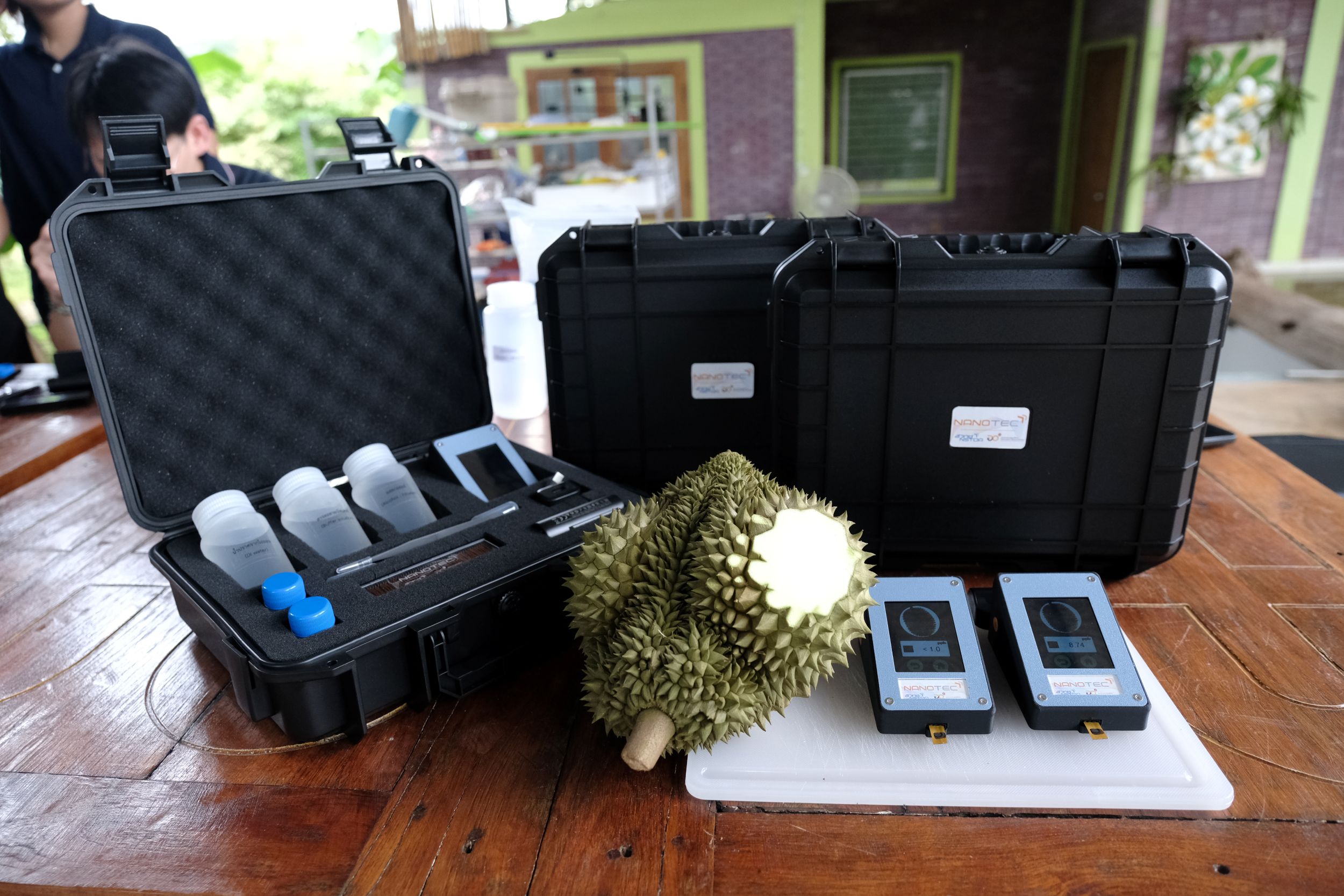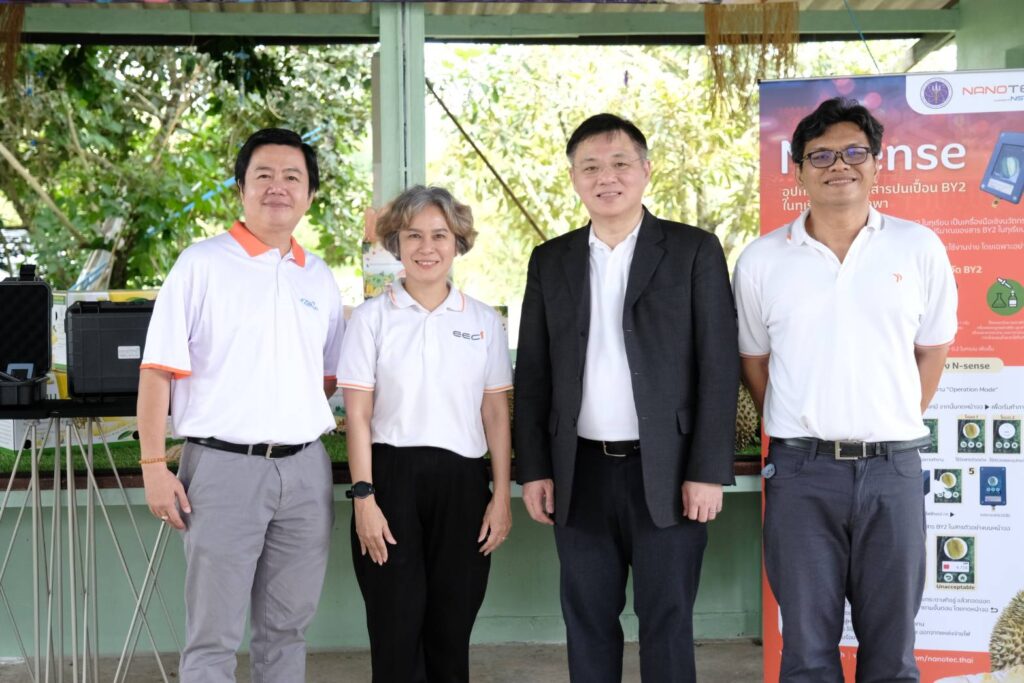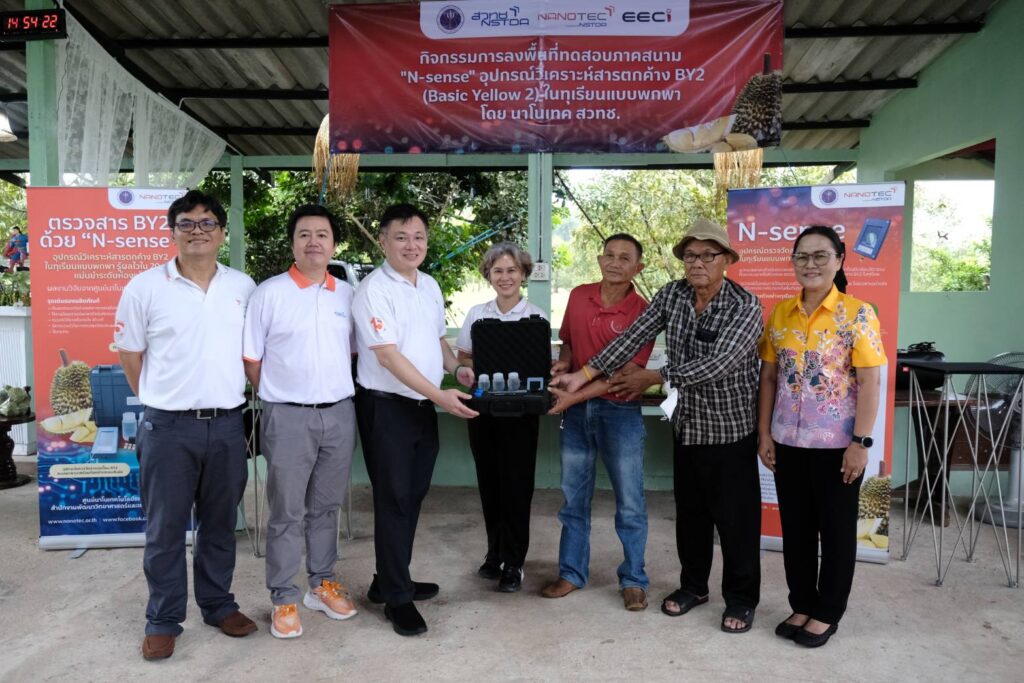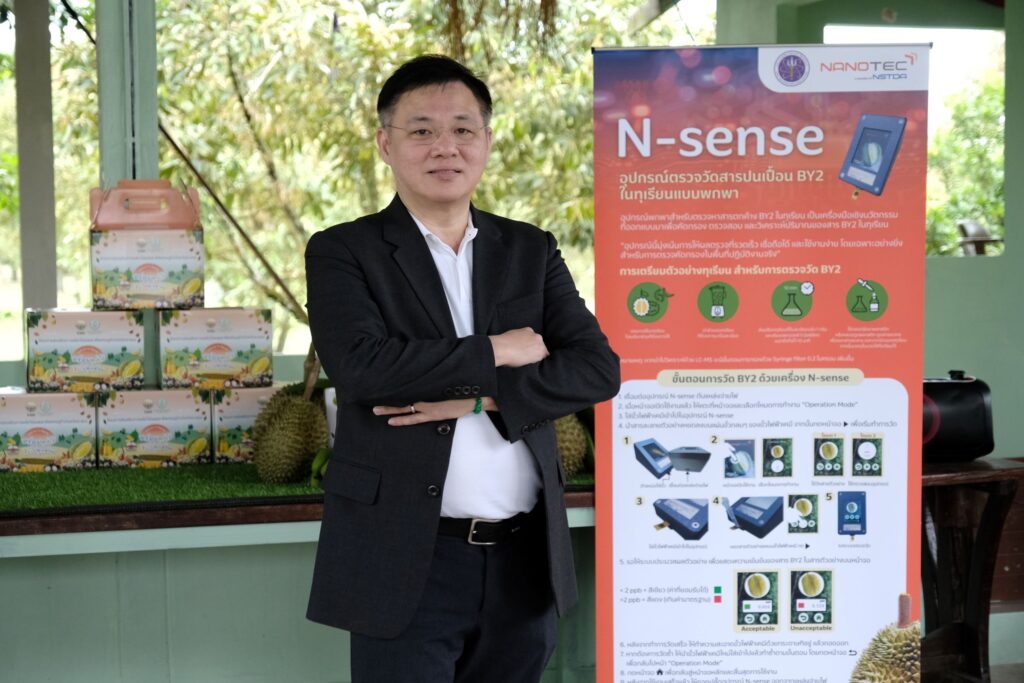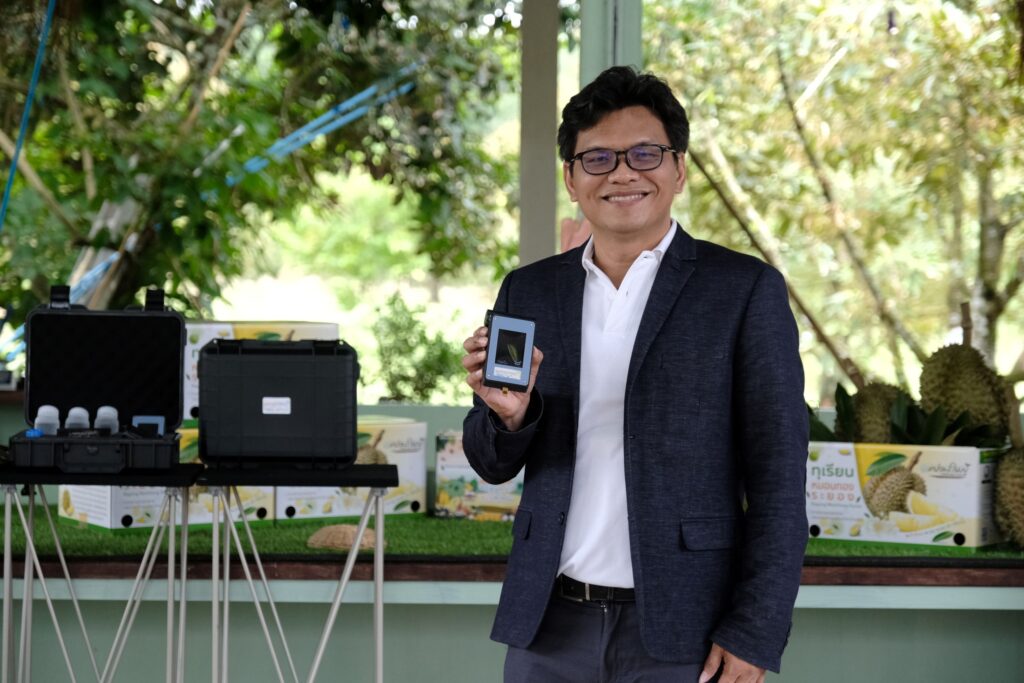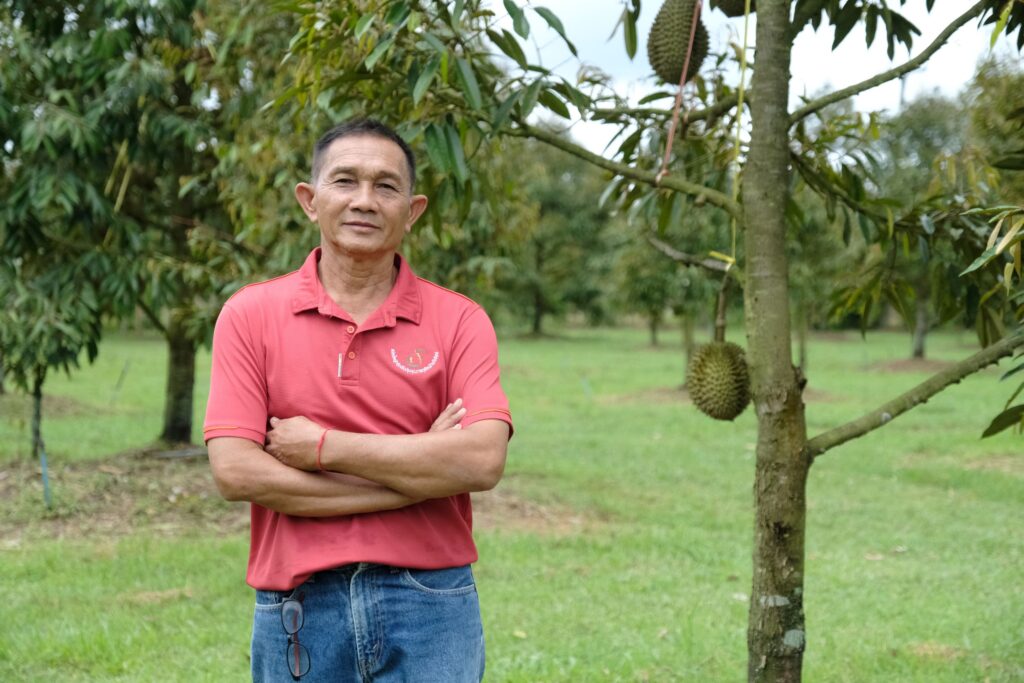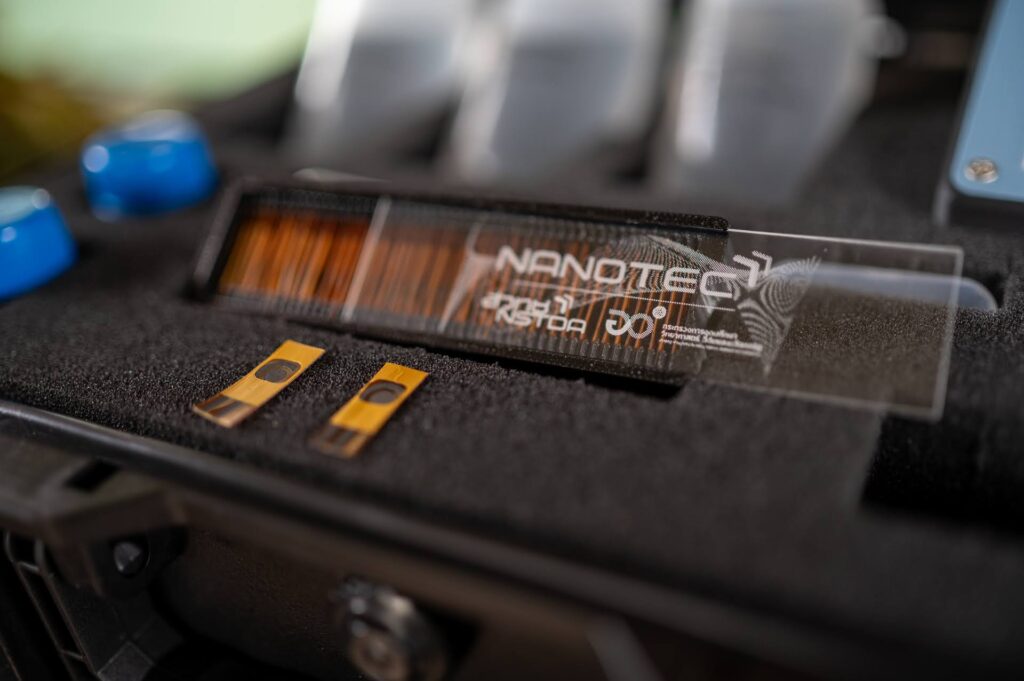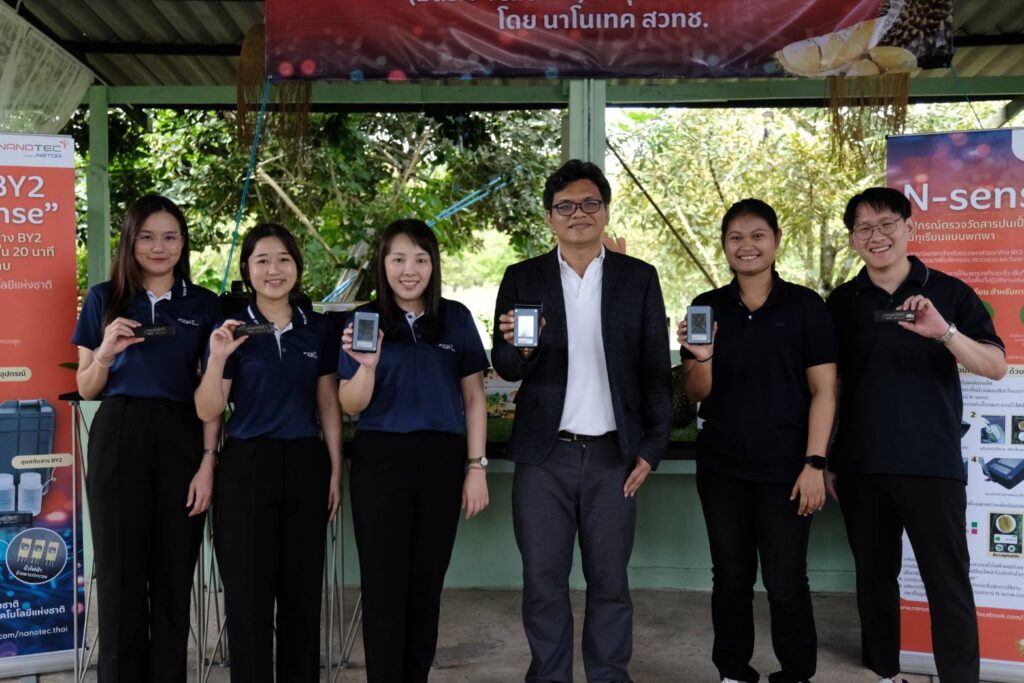Rayong, June 13, 2025 – The National Nanotechnology Center (NANOTEC), under the National Science and Technology Development Agency (NSTDA), Ministry of Higher Education, Science, Research, and Innovation (MHESI), is taking a major step toward improving agricultural safety and quality by field-testing the prototype “N-sense” device in Rayong Province. This portable innovation detects residues of Basic Yellow 2 (BY2), a prohibited dye substance in durians, and offers a game-changing solution for Thai farmers and exporters.
Fast, Accurate, and Farmer-Friendly
N-sense allows for BY2 detection within just 20 minutes—dramatically faster than the conventional lab-based methods, which typically require up to 48 hours. Compact and user-friendly, the device is designed to be used in the field, reducing both testing time and costs by more than tenfold while delivering highly accurate results. Impressively, it can detect BY2 levels as low as 0.56 ppb—well below China’s export limit of 2.0 ppb.
The innovation directly responds to the needs of Thai durian growers and exporters, particularly after recent concerns about BY2 contamination threatened to undermine durian exports—especially to China, Thailand’s largest market. In 2023 alone, Thailand exported 650,000 tons of fresh durian to China, valued at over 85 billion baht.
Strengthening Food Safety with Nanotech
Dr. Wiyong Kangwansupamongkol, Deputy Director of NANOTEC, emphasized that N-sense reflects NSTDA’s core mission of using science, technology, and innovation (STI) to tackle national challenges. “Durian is one of Thailand’s top economic fruits, generating enormous value. Ensuring its safety and quality, particularly for exports, is essential. This innovation directly contributes to food security and agricultural sustainability,” she said.
The N-sense device is part of NANOTEC’s broader focus under its strategic “Agro & Food” platform, which aims to apply nanotechnology to four key dimensions of food security: stability, utilization, availability, and access. The BY2 testing kit particularly addresses the need for safe food access, empowering producers to identify contamination risks before products leave the farm.
From the Lab to the Field: Real-World Testing in Rayong
Dr. Ananop Klamchuen, Director of the Advanced Nano-Analytical Research Group at NANOTEC, explained that the N-sense prototype was developed by leveraging the team’s existing expertise in nanosensors and chemical analysis.
“N-sense consists of two main components: a selective electrochemical sensor specifically designed for BY2 detection, and a portable reader for real-time data processing. It essentially brings the lab to the field,” Dr. Ananop said. “This tool doesn’t replace standard lab testing but serves as a powerful first-line screening method to save time and cost for farmers and exporters.”
Recently, the NANOTEC team conducted field testing in Wang Chan District, Rayong—an area within the Eastern Economic Corridor of Innovation (EECi)—an important agricultural innovation hub. Durian samples from local farms were tested on-site, helping build confidence in the safety and quality of produce from the region.
Farmers Welcome Innovation
Mr. Saman Promma, President of the Wang Chan Large-Scale Durian Farming Group in Rayong, expressed strong support for the initiative. His group includes over 30 farmers cultivating more than 300 rai (120 acres) of durian, focusing on premium quality and international standards.
“Export markets are demanding, and innovations like N-sense are vital for our survival and competitiveness,” Mr. Saman said. “We believe R&D from agencies like NSTDA will elevate the reputation of Wang Chan durians and ensure we can meet the stringent safety standards of global markets.”
A Model for Future Agricultural Diagnostics
NANOTEC sees vast potential for expanding the N-sense platform beyond durians. Future adaptations could enable rapid, cost-effective testing of other contaminants in a variety of agricultural products and food processing industries.
Dr. Ananop concluded, “This is just the beginning. Portable diagnostic technology like N-sense will transform how we ensure food safety—not only in Thailand but for international markets as well.”


